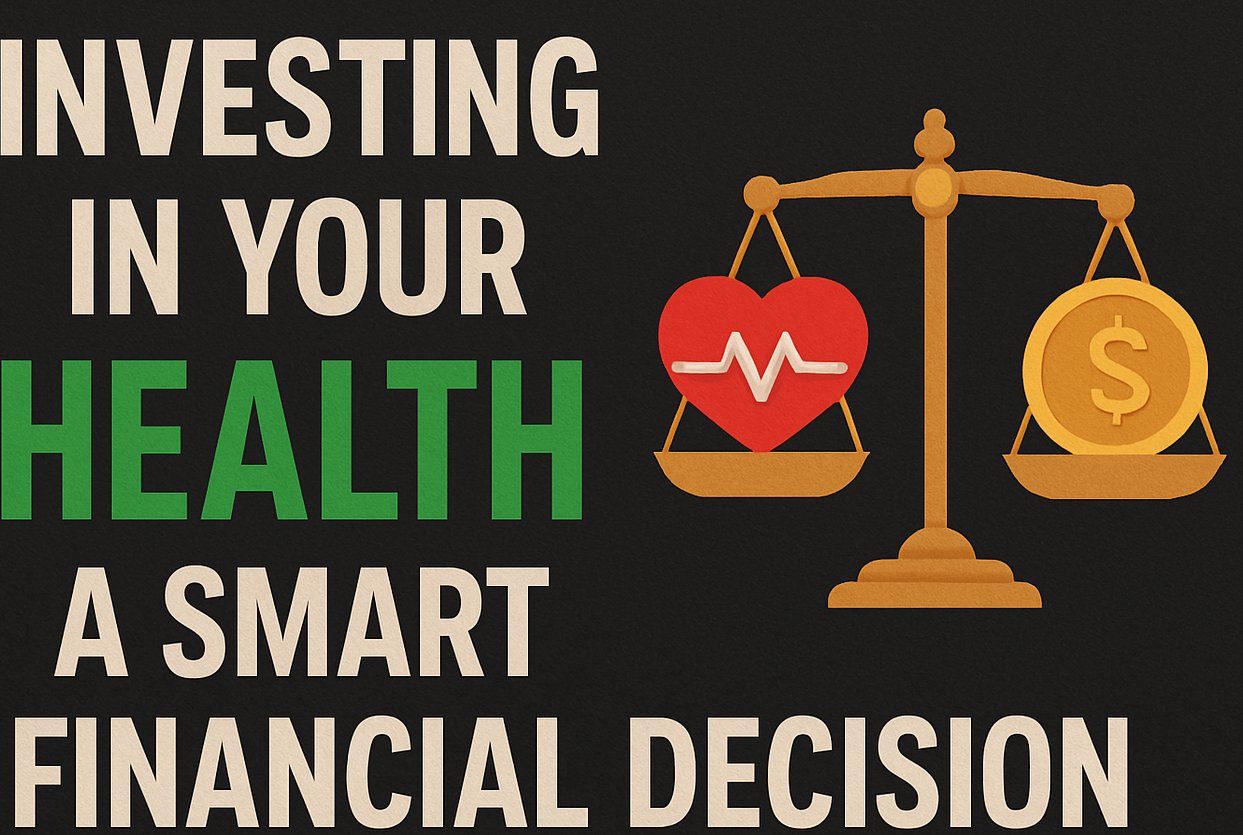Investing in your health is one of the most impactful financial decisions you can make. Healthy habits, such as eating nutritious foods, exercising regularly, and getting enough sleep, can prevent chronic diseases and reduce medical expenses over time. While it may seem like an upfront cost, the long-term savings and improved quality of life make it a worthwhile investment.
The Financial Cost of Poor Health
Chronic diseases such as diabetes, heart disease, and obesity are not only detrimental to your health but also expensive to manage. For example, the average annual cost of treating diabetes is over $9,000, while heart disease can cost tens of thousands of dollars in medical bills and lost productivity. By contrast, preventive measures such as regular exercise and a balanced diet can significantly reduce the risk of these conditions.
How to Invest in Your Health
- Prioritize Preventive Care: Regular check-ups, vaccinations, and screenings can catch potential health issues early, saving you money on treatments down the line. Many insurance plans cover preventive services at no additional cost.
- Adopt Healthy Habits: Incorporate physical activity into your daily routine, such as walking, cycling, or yoga. Aim for at least 150 minutes of moderate exercise per week, as recommended by the World Health Organization.
- Eat a Balanced Diet: Focus on whole, unprocessed foods such as fruits, vegetables, lean proteins, and whole grains. Limit your intake of sugary drinks, processed snacks, and fast food.
- Get Enough Sleep: Poor sleep is linked to a range of health issues, including obesity, diabetes, and heart disease. Aim for 7-9 hours of quality sleep per night.
- Manage Stress: Chronic stress can weaken your immune system and increase the risk of illness. Practice mindfulness, meditation, or deep breathing exercises to reduce stress.
The Financial Benefits of Investing in Your Health Early
The earlier you start prioritizing your health, the better the financial rewards. Regular exercise, healthy eating, and routine check-ups can help you avoid expensive health conditions later in life. This proactive approach not only keeps you physically fit but also improves your financial future by reducing medical bills and increasing your earning potential through better overall health.
Why Investing in Your Health is a Smart Financial Decision
Investing in your health is not just about staying fit; it’s also a crucial financial decision. Prioritizing your health can reduce future medical expenses, increase your productivity, and improve your overall quality of life. By adopting a proactive approach, you’re not only enhancing your well-being but also securing long-term financial stability. This decision pays off both physically and financially.
Why Health is the Best Investment You Can Make
Your health is your most valuable asset. By investing in it, you’re not only enhancing your physical well-being but also boosting your financial outlook. Healthy individuals are often more productive, have lower healthcare costs, and enjoy a better quality of life. In the long run, taking care of your health is a smart investment that pays off both physically and financially.
How Investing in Your Health Can Save You Money in the Long Run
Investing in your health today can prevent costly medical treatments down the road. By maintaining a healthy lifestyle, you reduce the risk of chronic illnesses, which can lead to expensive doctor visits and prescriptions. Small, consistent investments in fitness, nutrition, and wellness programs can result in big savings, making it a financially smart choice in the long term.
Real-Life Example
Mark, a 40-year-old accountant, was overweight and had high cholesterol. His doctor warned him that he was at risk for heart disease and recommended lifestyle changes. Mark started exercising three times a week, switched to a Mediterranean diet, and prioritized sleep. Within a year, he lost 20 pounds and lowered his cholesterol levels. By investing in his health, Mark not only improved his quality of life but also saved thousands of dollars in potential medical expenses.
Conclusion
Investing in your health is a smart financial decision that pays off in the long run. By adopting healthy habits and prioritizing preventive care, you can reduce the risk of chronic diseases, lower medical costs, and enjoy a better quality of life. Start small, stay consistent, and remember that your health is your greatest asset.

